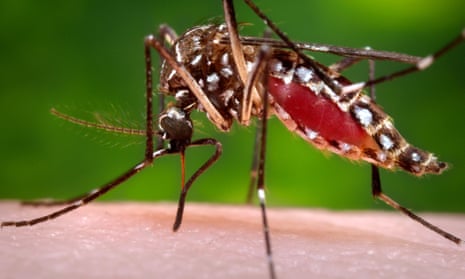Genetically modified mosquitoes could help Brazil combat the Zika virus, tests results released on Tuesday by a British biotech company suggest.
The South American nation has been scrambling to contain the spread of Zika, which has been linked to a recent surge in birth defects including microcephaly, a rare condition in which newborns have smaller than normal heads and their brains do not develop properly.
On Tuesday, company Oxitec said tests that began in April 2015 have shown that releasing genetically modified sterile male mosquitoes succeeded in reducing a variety of disease-transmitting mosquito larvae by 82% by year’s end.
The genetically modified mosquitoes don’t spread disease because only the females bite. The virus is carried by the Aedes aegypti mosquito, which also transmits dengue fever and chikungunya.
The tests were carried out in the city of Piracicaba, in the province of São Paolo. The city’s health department confirmed the tests and results.
Joseph Conlon, a technical adviser for the American Mosquito Control Association, called the results “novel and potentially efficacious”.
Colon said the procedure was not 100% effective, but if allowed to proceed to full measure, it would “reduce the mosquito population below disease transmission levels with minimal effect on the environment”.
He added that the Aedes aegypti were “notoriously difficult to control by conventional spray methods such as truck or aerial sprays”.
The US has reported its first case of a baby born with a birth defect linked to the virus. The Hawaii state department of health said the baby’s mother was likely to have contracted the disease while living in Brazil in 2015 and passed it on while her child was in the womb.
In Brazil, the army has been helping in efforts to control the mosquito population by eliminating standing water.
Most of the 3,530 babies the Health Ministry said had been born with microcephaly in the country since October 2015 had been concentrated in the country’s poorest regions, such as the north-east. But worries about Zika have prompted residents in wealthier cities such as Rio de Janeiro and Sao Paulo to stock up on mosquito repellent.
Fewer than 150 cases of microcephaly were seen in 2014.

Comments (…)
Sign in or create your Guardian account to join the discussion